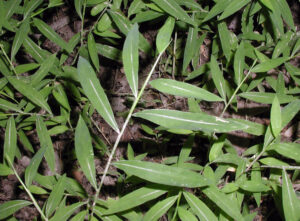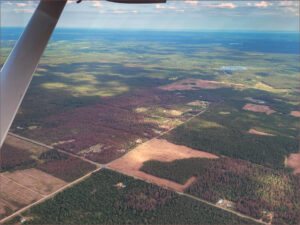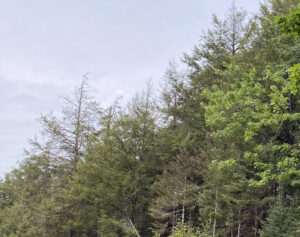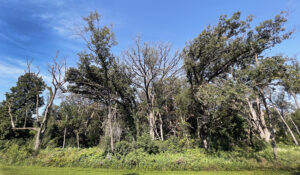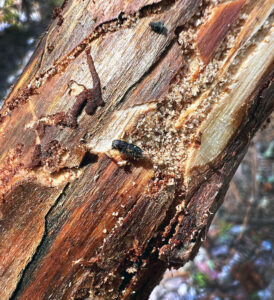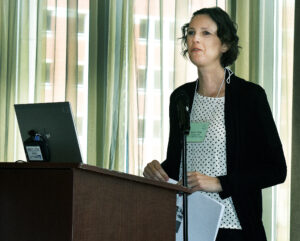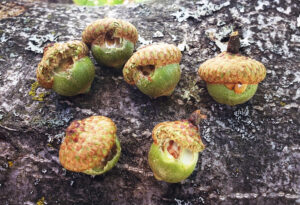By Linda Williams, DNR Forest Health Specialist, Woodruff
Linda.Williams@wisconsin.gov or 920-360-0665
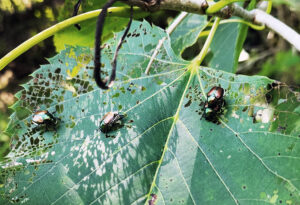
A closeup photo of Japanese beetles defoliating basswood leaves. The invasive pest is becoming more prevalent in northern Wisconsin. / Photo Credit: Linda Williams, Wisconsin DNR
The Japanese beetle (Popillia japonica) is an invasive insect that feeds on many plant species. The pests “skeletonize” leaves by eating the material between the veins.
Adult Japanese beetles feed on the flowers and leaves of more than 300 plant species, including trees, shrubs and herbaceous plants. Forest trees can be defoliated, with open-grown or edge trees suffering the highest defoliation rates.

